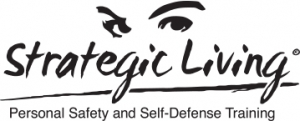That pioneering piece of legislation giving college girls equal rights to resources for sports on college campuses is turning 40 on June 23rd. It’s older than many of its beneficiaries, and because of Title IX there are MANY beneficiaries.
Sports is much more than play — it teaches lessons of persistence, teamwork, fairness, and cooperation. Even though we too often hear about teams, coaches, and players who seek unearned wins by “gaming” the rules, there are sanctions and penalties and commissions to keep cheaters in line. And sports is one of our main venues to discovering out strongest selves.
In addition to self-defense, I teach traditional karate. I train and teach at Seattle’s Feminist Karate Union, and also run programs for children at Thurgood Marshall Elementary and Lowell@LIncoln Elementary. In these schools, parents most often enroll their child in this enrichment program to develop strength, balance, and coordination; increase self-discipline and goal-setting; and learn to focus. Parents in these schools rarely cite self-defense as a motivator.
Yet, in an indirect way, being involved in sports may be crucial to women’s self-defense:
- Sports develops speed, strength, and coordination, all of which are useful in physical self-defense. That is obvious.
- Studies also show that girls who participate in sports are less likely to use drugs and alcohol, less likely to have an unwanted teenage pregnancy, more likely to get better grades and graduate school, and more likely to have a better body image and level of confidence and self-esteem. They will also participate in teamwork and the pursuit of excellence. And, maybe not so surprising, these are all risk-reducing elements for sexual assault.
- Sports teaches the illusion of confidence. Even if you are afraid, act confident. Very important in the self-defense toolkit!
- Finally, participating in any athletic activity teaches that your body can handle stress, and get stronger. Py Bateman, founder of the Feminist Karate Union, began her martial arts training at a time when almost every martial arts school was either overtly hostile to women wanting to train or was benignly neglectful. Bateman’s school was in the latter category. In this school, women were not permitted to spar. Hence, their rankings were “junior,” and the belt with a white stripe running all the way down the middle reflected that lack of status. Bateman worked to gain the right to spar, and it took a while. She recounted that after her first sparring match she was astounded that she could take a punch, indeed several punches, and still keep fighting.
This last point is the most important. Self-defense is largely a mental game. I’ve noticed this among my adult self-defense students. When inactive little girls grow up never having experienced a physical challenge, they are more often fearful of the harm a larger male attacker can inflict. When physically active (or formerly active) adults sign up for a self-defense class, they are more confident that there is a tool or technique they can use to extract themselves from harm. And that is the best predictor of successful self-defense.

